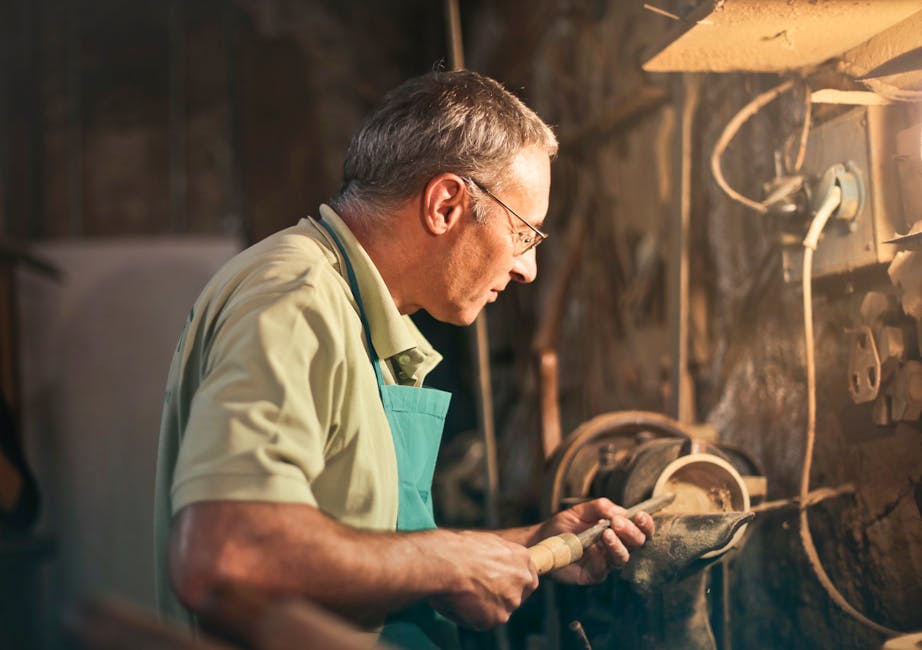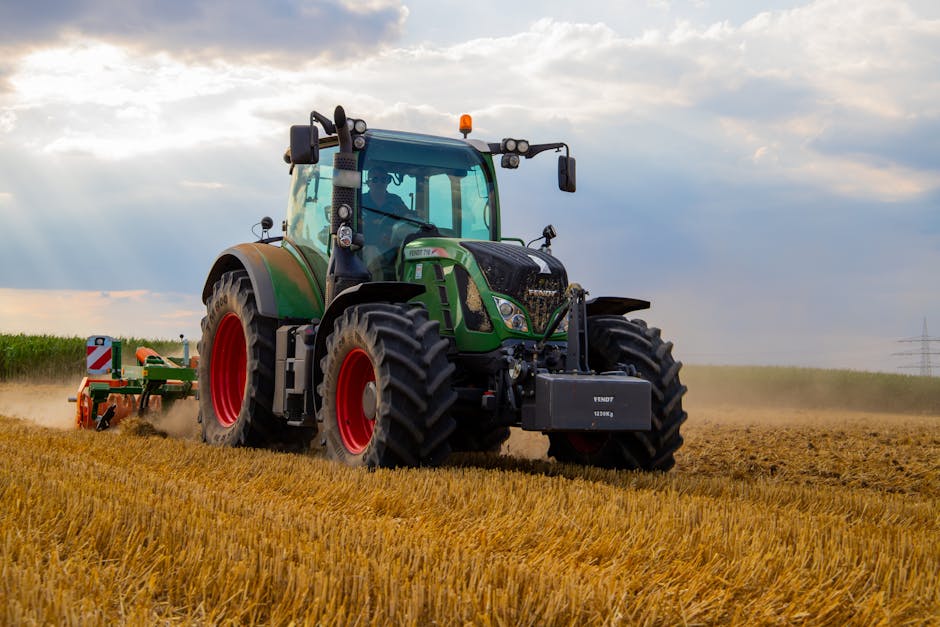Setting Up Your Workshop for Success
If you’re exploring metal fabrication, you’re likely pondering machines in a workshop. Whether you aim to build custom products or are a general welder, having the right machinery is crucial. Here are the basic machines you’ll need to set up your workshop:
- Lathe Machine: For turning and shaping.
- Milling Machine: For cutting and drilling.
- Grinding Machine: For finishing and polishing.
- Drilling Machine: For accurate and consistent holes.
- Bandsaw: For cutting requirements.
The journey into fabrication often begins when businesses decide to take control by setting up their own workshops. This trend has intensified post-COVID-19, with many fabricators starting their own ventures. Whether you’re crafting gates, railings, or intricate custom parts, the right machines make all the difference.
Setting up a workshop isn’t one-size-fits-all. Different setups serve different needs, and the key is finding the right equipment for what you aim to produce. In this guide, we’ll help you steer these choices so you can start your fabrication journey with confidence.

Essential Machines in a Workshop
When setting up a workshop, the right machines can make all the difference. From cutting and shaping to drilling, welding, and automation, each machine serves a unique purpose. Let’s explore the essential machines that every workshop should consider.
Lathe Machines
Lathe machines are fundamental for turning operations. They hold and rotate the material, while a cutting tool shapes it. CNC lathes offer automated precision, perfect for producing precision machined parts. Manual lathes are more hands-on but still deliver high accuracy. At TMC Technologies, we rely on both types to meet diverse client needs.

Milling Machines
Milling machines use rotary cutters to remove material from a workpiece. CNC milling machines are automated and ideal for complex shapes. Manual milling is more labor-intensive but allows for greater control. Face milling is used to create flat surfaces, while peripheral milling shapes the edges. These machines are indispensable for any workshop aiming for precision work.

Grinding Machines
Grinding machines employ an abrasive wheel to finish surfaces. They are perfect for polishing, buffing, and achieving exact dimensions. Internal cylinders and complex shapes benefit from grinding. Tasks like finishing and removing rough projections are made easier, ensuring a smooth, polished end product.

Drilling Machines
Drilling machines are essential for creating holes. Pillar drills and radial drills are common in workshops. Vertical drilling machines offer consistent and precise boring. Whether it’s a simple hole or a complex pattern, these machines ensure accuracy and efficiency.

Shaping Machines
Shaping machines use a single-point cutting tool to cut curves, angles, and flat surfaces. They are more affordable than lathes or milling machines and are perfect for cutting intricate shapes. Whether you need to create a specific angle or a flat surface, shaping machines are a reliable choice for any workshop.

In the next section, we’ll explore specialized workshop machines that can further improve your fabrication capabilities.
Specialized Workshop Machines
When it comes to machines in a workshop, having specialized equipment can significantly boost your productivity and versatility. Let’s dive into some key specialized machines that can take your workshop to the next level.
Steelworkers
Steelworkers are versatile machines that combine multiple functions into one. They can handle punching, shearing, and notching with ease. This makes them invaluable for any workshop looking to save time and labor.
-
Hydraulic Guillotine: This type of steelworker offers precise cuts with better accuracy, especially for thin sheets. The hydraulically variable rake angle design ensures twist-free cuts, making it a go-to for many fabricators.
-
CNC Plasma: For cutting through electrically conductive materials like steel, CNC plasma machines are excellent. They provide high-speed, precise cuts, making them ideal for thicker materials where other cutting methods may fall short.
Bandsaws
Bandsaws are essential for meeting various cutting requirements. They offer the flexibility to cut different shapes and sizes of materials with high precision.
-
Sterling Swift Range: Known for its automation and efficiency, this range is perfect for workshops needing reliable and consistent performance.
-
Bianco Ranges: These bandsaws offer a variety of models custom to different cutting needs, from manual to fully automated solutions.
Roller Track Systems
Material handling can often be a bottleneck in workshops. Roller track systems ease this process, ensuring smooth and efficient movement of materials.
-
In-feed and Out-feed Rollers: These rollers are crucial for handling heavy materials like steel. They take the load off the operator, making it easier to move long or heavy pieces without risk of injury.
-
Heavy-Duty: Our roller track systems are cost-effective and built to last, making them a smart investment for any new workshop. They come in three different widths—350 mm, 450 mm, and 650 mm—to suit your specific needs.
Investing in these specialized machines will not only improve your workshop’s capabilities but also ensure you can tackle a wide range of fabrication tasks efficiently.
In the next section, we’ll address some frequently asked questions about essential fabrication shop machines.
Frequently Asked Questions about Machines in a Workshop
What machinery is in a workshop?
A workshop is a hub of activity, filled with various machines that help in cutting, shaping, drilling, and more. Here are some essential machines in a workshop:
-
Turning Machines: These include both CNC and manual lathes, which are used for shaping materials by rotating the workpiece against a cutting tool.
-
Shapers: Ideal for cutting curves, angles, and flat surfaces. They use a single-point cutting tool that moves back and forth.
-
Planers: Similar to shapers but larger, planers are used for producing flat surfaces and cutting slots.
-
Drilling Machines: From pillar drills to radial drills, these machines create precise holes in materials.
-
Milling Machines: These machines use rotary cutters to remove material and create various shapes. Both CNC and manual milling machines are common.
-
Grinding Machines: Used for finishing and polishing surfaces, grinding machines use an abrasive wheel to remove material.
-
Power Saws: Including bandsaws and circular saws, these are essential for cutting materials to size.
-
Presses: Hydraulic and mechanical presses are used for shaping and cutting materials by applying high pressure.
What are the 7 basic types of machine tools?
Machine tools are the backbone of any workshop. Here are the seven basic types you’ll find:
-
Cutting Tools: These include saws, knives, and scissors used for cutting materials.
-
Grabbing Tools: Pliers, clamps, and vices that hold materials in place.
-
Lifting Equipment: Hoists, jacks, and cranes for moving heavy items.
-
Measuring Tools: Calipers, micrometers, and tape measures to ensure precision.
-
Writing Tools: Markers, pencils, and scribes for marking measurements and guidelines.
-
Hammers: Various types of hammers for driving nails, shaping metal, and other tasks.
-
Screwdrivers: Essential for assembling and disassembling parts.
What tools are found in a workshop?
A workshop is equipped with a variety of tools to handle different tasks. Here’s a rundown of essential machine tools:
-
Cutting Tools: These include saws, milling cutters, and drills for removing material.
-
Boring Tools: Used for enlarging holes or creating precise internal diameters.
-
Grinding Tools: Abrasive wheels and grinders for finishing surfaces.
-
Shearing Tools: Shears and guillotines for cutting sheet metal and other materials.
-
Deformation Tools: Presses and hammers used for bending, shaping, and forming materials.
These tools and machines are crucial for a workshop’s functionality, enabling it to perform a wide range of tasks efficiently and accurately.
In the next section, we’ll dive into some specialized workshop machines that can take your fabrication capabilities to the next level.
Conclusion
At TMC Technologies, we understand the importance of having the right machines in a workshop. Whether you’re just starting out or looking to upgrade your current setup, the quality and precision of your equipment can make all the difference.
CNC Precision Machining
Our expertise in CNC precision machining ensures that every component we produce meets the highest standards. From complex aerospace parts to intricate medical devices, our state-of-the-art CNC machines deliver unparalleled accuracy and consistency. This precision is crucial for industries where even the smallest deviation can lead to significant issues.
High-Quality CNC Components
We pride ourselves on producing high-quality CNC components that exceed our clients’ expectations. Our advanced CNC technology allows us to work with a variety of materials, including metals and high-temperature plastics. This versatility ensures that we can meet the diverse needs of our clients, regardless of their industry.
Custom Applications
Every project is unique, and we specialize in creating custom applications custom to your specific requirements. Our team works closely with you from the initial design phase through to the final product, ensuring that every detail is perfect. This collaborative approach allows us to deliver solutions that are not only high-quality but also highly functional.
Carroll, Iowa
Located in the heartland of America, our facility in Carroll, Iowa is equipped with the latest in machining technology. This strategic location allows us to serve clients across various industries efficiently. Our commitment to excellence and customer satisfaction has made us a trusted partner for businesses looking for precision and reliability in their machining services.
For more information about our services and how we can help you achieve your fabrication goals, visit our CNC Metal Fabrication page. Let’s shape the future of manufacturing together.
By investing in the right equipment and partnering with experts like TMC Technologies, your workshop can achieve new levels of efficiency and precision. Whether you’re fabricating custom products or producing high-volume parts, the right machines and the right partner can make all the difference.